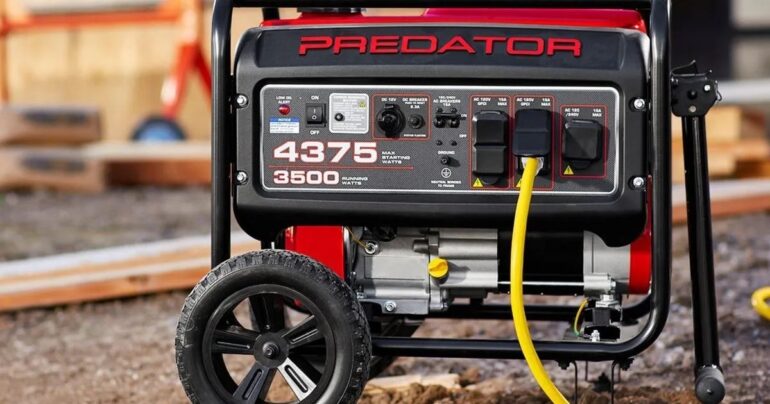🔴 Website 👉 https://u-s-news.com/
Telegram 👉 https://t.me/usnewscom_channel
With all the outlets, inputs, buttons and switches, home generators can be overwhelming. If you’re not a trained electrician or someone who works closely with wires and power, these backup power devices can seem like some sort of cryptic 3D puzzle. Yet, if you live in a hurricane-prone area or if you like to be prepared during a power outage, getting a portable generator of your own can be a huge help. And according to the experts we consulted, home generators are less confusing than they may seem.
Generators Versus Power Banks And Power Stations
First things first, what is a home generator? And is it the same thing as a portable power bank? (Spoiler: No.)
“A generator uses a fuel source to convert it to electrical energy,” said Aaron Willeford (also known as “Aaron the TikTok Handyman”), a regional maintenance director in McKinney, Texas. “[A] power station [is] a battery bank which provides power without the need for fuel or moving parts, only recharging.”
Willeford said generators typically range from 1,000 to 40,000 watts and are used for longer-term power for homes and larger appliances, like air conditioners and refrigerators. Because they run on fuel, they can run as long as there is a fuel source.
“Power stations, on the other hand, have a max life of around 6 hours with a peak wattage of around 1,000 watts,” Willeford said. “Which will be good for charging phones and electronics, but not for powering the home.”
What is a home generator?
Harry De Loach, a master electrician, founder of The Academy of Industrial Arts and the director of education and training for the Leaders of Electrical License Preparation in Philadelphia, Pennsylvania, explained that there are two main categories of home generators: permanent and portable.
Permanent generators have something called an automatic transfer switch and can be set up to run on natural gas. “As soon as you lose power from the utility company, it’ll switch over seamlessly,” De Loach told HuffPost. “There’s no noise, there are no fumes.”
Because these generators can automatically keep your entire house running during a power outage, they’re not cheap. De Loach says a permanent power backup system can run you up to $25,000 and requires professional installation.
A more affordable option — and something you can purchase and set up on your own — is a portable home generator, which runs on gas and/or propane. They range in size, wattage, functionality and, ultimately, price. (One of Loach’s recommendations is the DuroMax XP12000EH 12,000-watt generator.)

